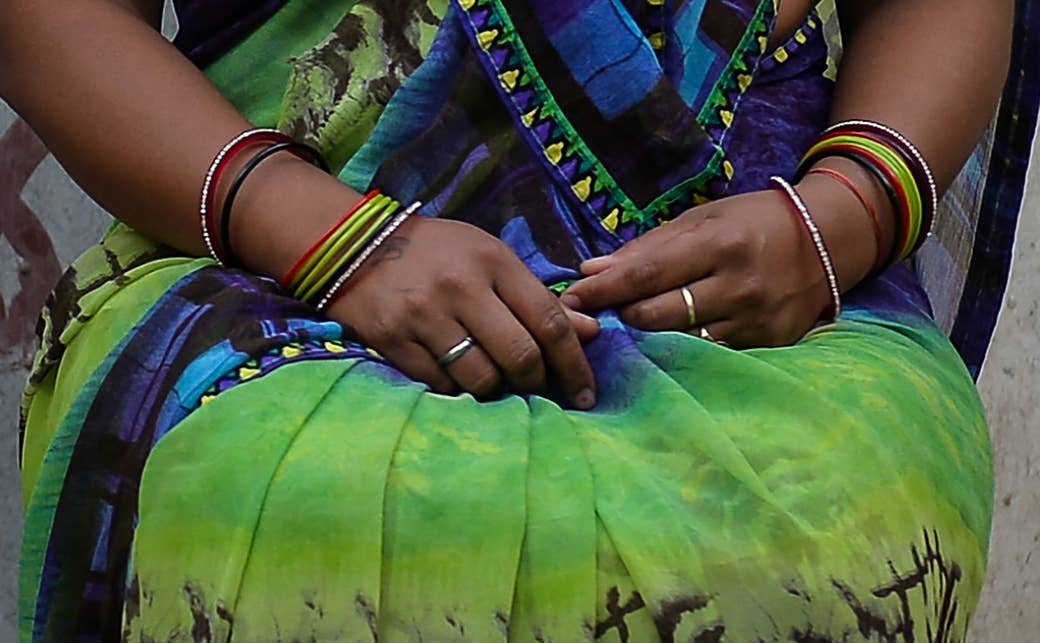
As of this week, a Delhi High Court bench is hearing pleas for and against criminalising marital rape in India.
An NGO named Rit Foundation, women's rights group AIDWA (All India Democratic Women's Alliance), and one individual who herself suffered marital rape are arguing that Exception 2 of Section 375 of the Indian Penal Code, under which millions of Indian women have been legally raped in their own bedrooms, should be deemed unconstitutional.
On the other side of the debate is the "Union of India", aka our central government.
On August 28, gender equality and men's organisation Forum to Engage Men (FEM) filed to be included as a petitioner against the government, and its application was accepted yesterday.
Below is an excerpt from its application, which lists reasons men should be invested in the fight against legal marital rape. It has been shortened for clarity and bolded for emphasis.
Application for inclusion of "Forum to Engage Men" as Petitioner No. 2
1. We wish for our wives and the wives of all Indian men, not to be reduced to legal objects incapable of sexual will, and with no legal ability for sexual expression. Indeed, we stand with married, and all women for effective decision-making over their reproduction.
"We believe that there are men, there are men, and there are better men."
2. We believe that there are men, there are men, and there are better men. ... We are and represent men who enter into marriage as an equal partnership and stand for the basic, indivisible, and interrelated rights of both partners to equality, freedom from violence and dignity.
3. Marriage is a partnership between equals, however men have historically assumed ‘privileges’ including the privilege of having sex at their insistence. Most women have been conditioned to accept that. ... The full legal personhood of our wives only benefits us as men and helps our marriages as equals flourish, with freely given expression to sexual desire for sex, for pleasure as well as for reproduction.
…
10. 20% of men surveyed reported committing sexual violence against the partner and 14% reported committing sexual violence against their partner in the last one year. According to a report in the British Medical Journal, Lancet, as many as 27.5 million women in India have faced sexual violence and 10% of all married women experience sexual violence from their husbands. All available evidence indicates that sexual violence is a widespread phenomenon in India for married women.
"Marriage is a partnership between equals, however men have historically assumed ‘privileges’ including the privilege of having sex at their instance [sic]."
11. The process of socialization of men happens in such a way that men feel that they are entitled to have sex with women at their will. They are socialized to believe that women are expected to have sex whenever their husbands want sex. The work of FEM members with men has shown that men, after they have participated in the educational programme for men, realize that this is disrespectful of women and amounts to violence against women.
...
13. Such men have acknowledged that they had been ‘wrongly’ socialised to have sex at their will, and with no concern for whether their wives agreed or not. They subsequently changed their beliefs and behaviours and only had sex when there was mutual consent. In many cases it has been seen that their wives have also reported that there has been a change in the sexual behaviour of their husbands, and that their sex lives have improved after their husband has been part of the programme implemented by FEM partners.
"They had been ‘wrongly’ socialised to having sex at their will, with no concern for whether their wives agreed or not."
...
17. The fourth round of the National Family Health Survey 2015-16 shows that on an average nearly 30% (28.8) of all ever married women in the age-group 15 to 49 years face spousal violence. In absolute numbers this means that nearly 70 million married women out of India’s population of 1.3 billion have faced domestic violence.
18. That FEM believes that by setting aside the exception in Section 375 of the Indian Penal Code, Section 376B and Section 198B of the CrPC and making marital rape a cognizable offence the Court will be sending a message to the married men of India that coercive sex with their wives is a criminal act. This will set a new norm, and act as a deterrent. Such an order by this Court will have the potential to benefit tens of millions of women in India, who are otherwise at the risk of sexual violence and rape by their husbands and partners every day.
Read FEM's full application here.

